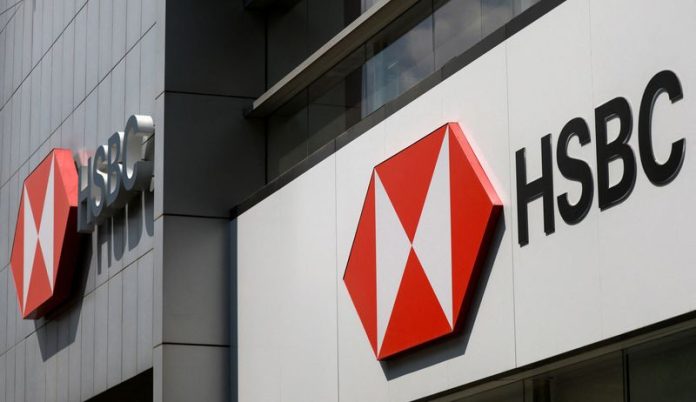By Stefania Spezzati and Iain Withers
LONDON (Reuters) -HSBC (HSBC) plans to step up surveillance of staff and buildings by adding more cameras and biometric access to its premises globally, internal documents seen by Reuters show, a move that comes amid growing concerns about companies’ extensive monitoring of workers.
As part of its “global security strategy”, the bank plans a four-fold increase in the number of cameras at its new building in the City of London, a site about half the size of its existing office in Canary Wharf, an internal presentation by the bank’s protective security team dated May 2025, seen by Reuters, shows. According to the presentation, the new London building is expected to have an estimated 1,754 cameras, up from about 444 devices installed in its current global headquarters in Canary Wharf in London.
It also plans to double its biometric readers to access the new building to 779 from 350.
Under the plan, reported here for the first time, access to HSBC’s top-tier buildings, including in Britain and the U.S., should be based on biometric verification, including full-hand recognition.
Access can also be “digital”, with employees expected to use their own mobile phones to badge in, the presentation document shows.
HSBC, Europe’s biggest bank by assets, employs more than 210,000 people globally, including more than 31,000 across the UK.
Most employees are expected to use personal mobile phones with a firm-installed software on them to gain access. This has met with some resistance from staff, a person with knowledge of the policies said.
As of the end of last year, most of the UK staff had yet to adhere to the biometric and digital access policy which the bank started to implement in 2022, in part because of opposition, according to the person.
“The safety and security of our people is at the forefront of everything HSBC does,” an HSBC representative told Reuters.
“We regularly risk assess every building and dependant on the identified risk and vulnerabilities, we continue to invest in the latest cutting-edge technology to safeguard our colleagues, customers and visitors in line with industry standards,” the bank added.
Companies have increased surveillance of staff amid a shift to hybrid working, while advances in technology allow for more sophisticated controls.
Banks in particular have stepped up monitoring to ensure the parts of their businesses that are heavily regulated comply with conduct rules. National privacy laws determine what companies can monitor.
The extensive surveillance enabled by new technologies is raising concerns about risks to workers’ rights and wellbeing, according to a May report by the Institute for Public Policy Research, a London-based think tank.
In July, HSBC requested that senior staff globally report to the office at least four days a week, starting from October, a bank spokesperson said. Previously, the bank had no global policy on the matter, with approaches varying depending on the country, they said.
As demands for office space grow again, the bank has decided to add to its planned City of London HQ, with a new smaller presence in Canary Wharf, Reuters reported.
The documents seen by Reuters do not include references to the new Canary Wharf office space.
The bank’s security project is overseen by Diane Marchena, global head of protective security, who reports to Chief Operating Officer Suzy White, the person with knowledge of the matter said.
Marchena and White declined to comment for this article.
HSBC has been working with Israeli firm Octopus since at least 2024, adopting some of its tools for surveillance in the UK and Hong Kong and is planning more rollouts for monitoring, other documents outlining HSBC’s global strategy seen by Reuters show.
HSBC plans the deployment of Octopus tools in other countries such as India and Mexico this year, the documents, which are undated, show.
Israel is one of the world’s leading exporters of surveillance. Octopus says it sells its tools to buyers in 28 countries. Its technology has been reportedly used by entities, including the Israeli government to monitor some Israeli cities and a European Union-funded refugee camp on the Greek island of Samos.
A representative for Octopus did not take Reuters calls seeking comment and the company did not respond to a Reuters email seeking comment.
An HSBC spokesperson said the bank does not comment on vendors or suppliers.
In HSBC’s new London building, the increased video surveillance will include cameras at entry and exit points of trading floors, the May 2025 presentation shows, and the use of artificial intelligence analytics.
HSBC’s budget for the initial rollout of the new London building surveillance was recently tripled to about $15 million, the person familiar with the matter said.
According to the presentation, “theft incidents” in its Canary Wharf building “point to the need for increased CCTV capabilities on working floors,” and that recent “crime data” showed an increase of incidents, including burglary, within a one-mile radius of the new office.
The person familiar with the matter said that theft events on HSBC premises were mostly minor.
(Reporting by Stefania Spezzati and Iain Withers; editing by Elisa Martinuzzi and Jane Merriman)

